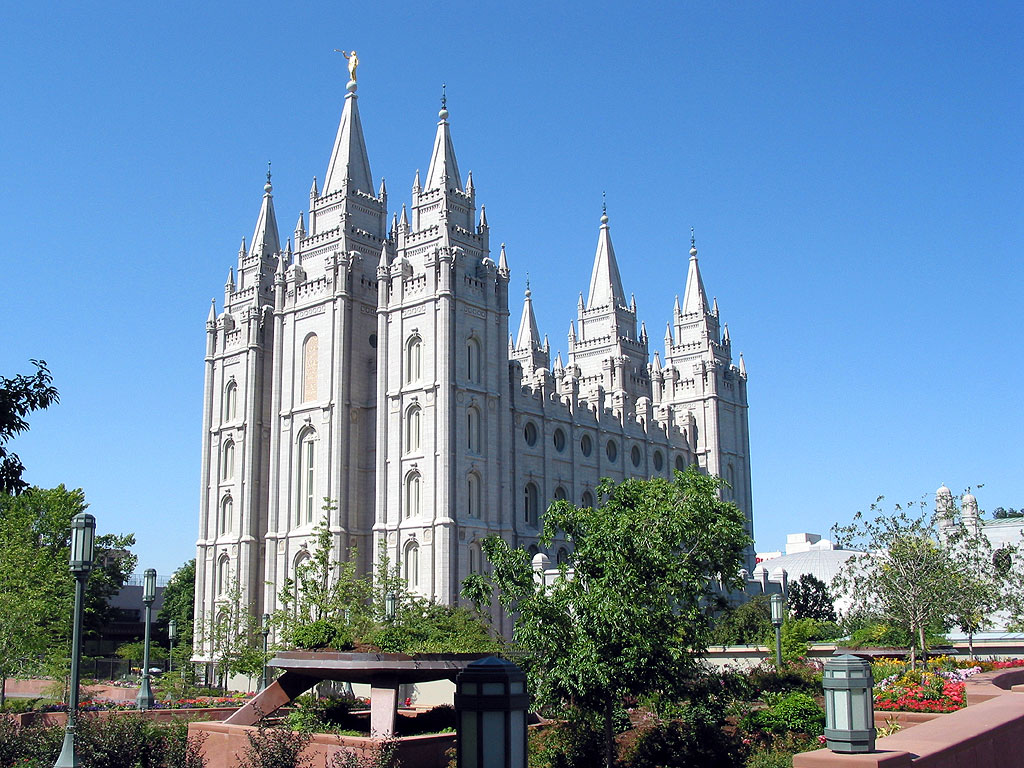Sealing Power
In the restored gospel of Jesus Christ (the doctrine taught by The Church of Jesus Christ of Latter-day Saints), the sealing power is the means whereby all “covenants, contracts, bonds, obligations, oaths, vows, performances, connections, associations, or expectations” attain “efficacy, virtue, or force in and after the resurrection from the dead,” and “all contracts that are not made unto this end have an end when men are dead” (see Doctrine and Covenants 132:7.
Defining the Term “Sealing”
- Signets and seals have been used from early antiquity to certify authority. The word "seal" appears many times in the scriptures. Jesus Christ was "sealed" by God the Father, John 6:27 and Paul reminded ancient Saints that God had anointed and sealed them 2 Corinthians 1:21–22 and told others they "were sealed with that Holy Spirit of promise, which is the earnest [assurance] of our inheritance until the redemption." Ephesians 1:13–14 John spoke of the servants of God being sealed in their foreheads. Revelation 7:3
Thus, in Latter-day Saint theology, “sealing” is defined as an ordinance (a practice that demonstrates the participant’s outward expression of faith) performed in Latter-day Saint temples by a person holding the authority to perform the sealing. The purpose of the sealing ordinance is to make possible the existence of family relationships throughout eternity.
The doctrines of The Church of Jesus Christ of Latter-day Saints (inadvertently referred to as the “Mormon” Church by the media and others) teach that this authority, called the Priesthood, corresponds to the authority given to Peter as recorded in Matthew 16:19:
- And I will give unto thee the keys of the kingdom of heaven: and whatsoever thou shalt bind on earth shall be bound in heaven: and whatsoever thou shalt loose on earth shall be loosed in heaven.
Restoration and Use of the Sealing Power
The sealing power is believed to have been held in Old Testament times by Elijah the Prophet. It is he who restored the power to Joseph Smith, the first prophet of the Church of Jesus Christ, and Oliver Cowdery in the Kirtland Temple on 3 April 1836 (see Doctrine and Covenants 110. The restoring of the sealing power was in fulfillment of an Old Testament prophecy as recorded in Malachi 4:5–6:
- Behold, I will send you Elijah the prophet before the coming of the great and dreadful day of the Lord: and he shall turn the heart of the fathers to the children, and the heart of the children to their fathers, lest I come and smite the earth with a curse.
Today, the sealing power is used in temples to perform ordinances for the living and for the dead. It is the sealing power that gives the authority to allow a living person to be baptized by proxy for a deceased relative in order that the ordinance may be validated in the spirit world.
An ordinance where the sealing power is clearly displayed is in marriage:
- Faithful Latter Day Saints believe civil marriages are dissolved at death if they are not later solemnized with a sealing, but that a couple who has been sealed in a temple will be married beyond physical death and the Resurrection if they remain righteous. This means that in the afterlife they and their family will be together forever. An illustrative difference in the marriage ceremony performed in LDS temples is the replacement of the words "until death do us part" with "for time and all eternity." [1]
These marriages are referred to as celestial marriages. Husbands and wives who are married in sacred temples are referred to as being sealed to one another, and in time their children are sealed to them, thus creating an “eternal family.”
Exercising the Keys of Sealing on the Earth
- The president of the Church holds and exercises the keys of sealing on earth. When a man is ordained an apostle and set apart as a member of the Quorum of the Twelve Apostles, sealing is one of the powers bestowed upon him. Other general authorities of the Church, the presidencies of temples, and a limited number of officiators in each temple receive this sealing power during their tenure. After one is approved by the First Presidency to receive the sealing power, the president of the Church, one of his counselors, or a member of the Twelve Apostles specifically designated by the president confers the sealing power upon him by the laying on of hands. This is the specific authority to perform the temple sealing ordinances. [2]
The late Elder Bruce R. McConkie taught,
- All things that are not sealed by this power have an end when men are dead. Unless a baptism has this enduring seal, it will not admit a person to the Celestial Kingdom. . . . All things gain enduring force and validity because of the sealing power [1]
- ↑ Mormon Doctrine, pp. 615–616.
